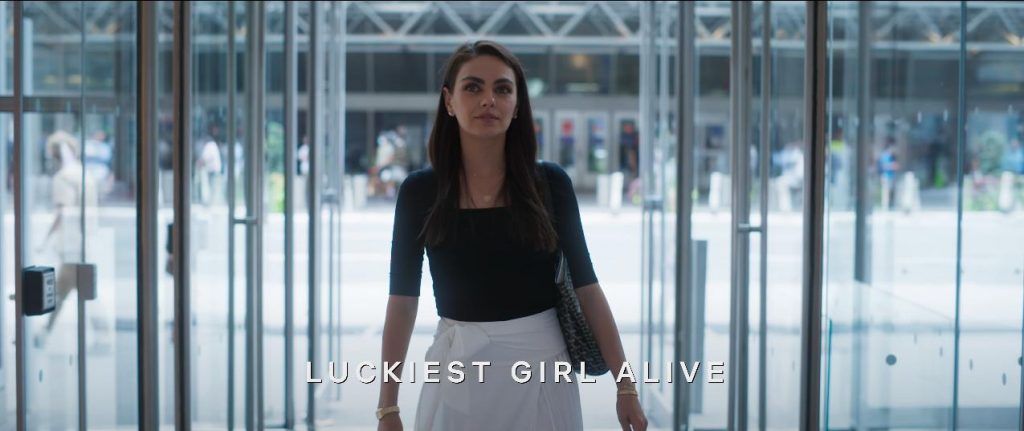The Women’s Bible, a publication for men’s enjoyment, has a senior editor named Ani Fanelli. She is going to accept the post of senior editor at the New York Times Magazine, resides in New York City, and is getting ready for a fancy wedding. According to her, she is “this close” to “being someone others can respect.” The gender wage gap and women’s issues in Afghanistan are important news topics, but men’s pleasure is equally important because it sells. Prestigious journalism awards are designed like phalluses, but that shouldn’t stop you from wanting to have a desk full of them in your office.
Hard to bury past
The way her life is going, “it seems like nothing ever happened to her.” She may be trying her hardest to bury her past, but no matter how hard she tries, it keeps coming back up in the crevices of her behaviour, such as when she keeps her mouth shut when speaking, wolfs down two pizza slices as soon as her fiancé uses the restroom, or when something significant shifts inside of her as she holds a knife.
Based on Jessica Knoll’s 2015 novel of the same name which was also an NYT bestseller, Luckiest Girl Alive amplifies a lot of what usually remains unsaid bullying, gun violence in American schools, sexual assault, rape, the stigma around victimhood, and the discrimination and humiliation that people from low-income backgrounds suffer. And it unpacks all of it with ivy-league schools as the backdrop.
Through her razor-sharp screenplay, Knoll deftly explores the vast grey and the myriad questions surrounding rape, such as whether it even counts as rape if it occurs while you are intoxicated, if you don’t recall saying no, if the perpetrator is more than just a friend, if you don’t report/avenge/take action to stop it from happening again, or if you don’t identify as a survivor.
Carefully and subtly, Mila Kunis transforms Ani into her own, causing you to recoil, struggle for air, and smile slyly in response. She relishes the character, which is among the meatiest to come to her in a long time, and she digs her teeth into it. Chiara Aurelia, who plays the young Ani, masterfully reveals the depths of juvenile weaknesses and fears that the older Ani has fought hard to conceal in Kunis.
Most upsetting and revealing sequence
Together, they utilise the story to reveal the pernicious anguish associated with abuse and humiliation. Beware of the part where the young Ani apologises to her lover and shares that she believes she was raped. Despite the fact that he gang-raped her together with two other buddies, he acts as though she is crazy for using such a strong language, that she doesn’t even understand what the term means, and how dare she accuse him. She asks for forgiveness right away, as if she were the one who did something wrong. One of the most upsetting yet revealing sequences in the movie is this one.
Although the individuals, circumstance, degree, and context may be different, haven’t we all been in this scenario and experienced it, sometimes repeatedly?
The movie exhorts viewers to recognise denial for what it is—soft, nuanced ways in which it manifests—and to liberate themselves from it. The movie Luckiest Girl Alive, which was directed by Mike Barker, also wants us to realise that abuse also includes making someone feel humiliated. The people who love you, who failed you so badly, stop trying to shield them with this nebulous half-assery, says Jennifer Beals’ character Lolo Vincent, who plays Ani’s employer in the movie. An approximate level of honesty is unacceptable.
Luckiest Girl Alive feels hurried for a thriller based on a lengthy book with a lot to say in its under two-hour running time. It is an accurate adaption of coming of age, which occurs for Ani at the age of 28. It can take this long on occasion. Occasionally even longer. And in certain circumstances, a lifetime. A movie that deals with subjects as gritty and harrowing as juvenile trauma, violence, and abuse typically causes you to pause and reflect. The unsettling William Faulkner adage, “The past is never dead,” is something that Luckiest Girl Alive does as well as doing more. Not even passed yet.
